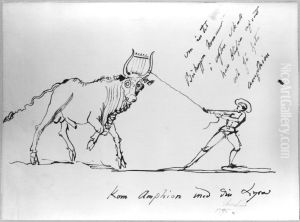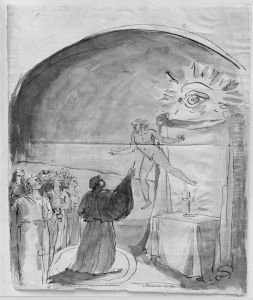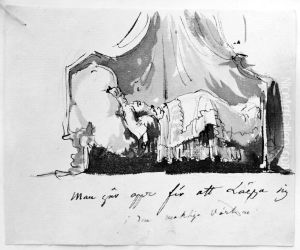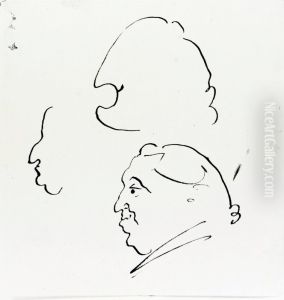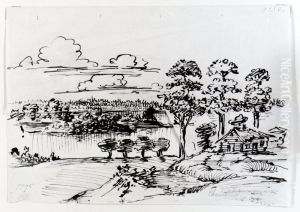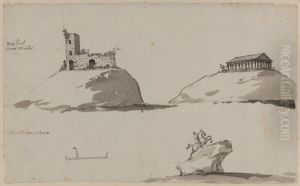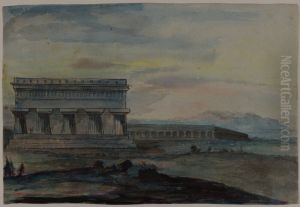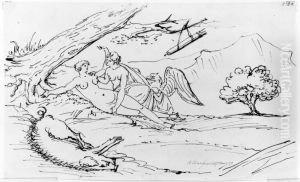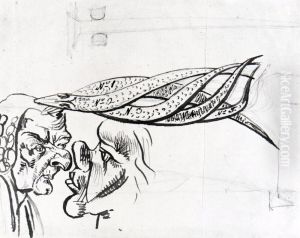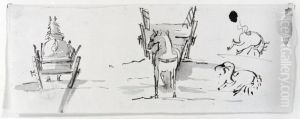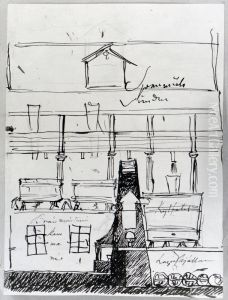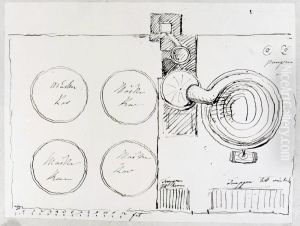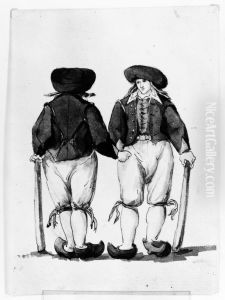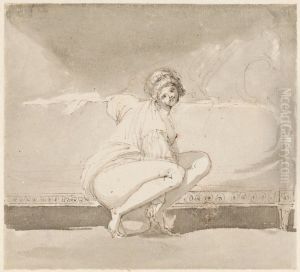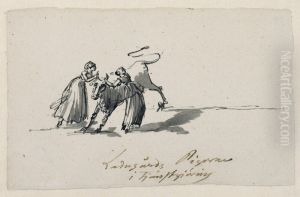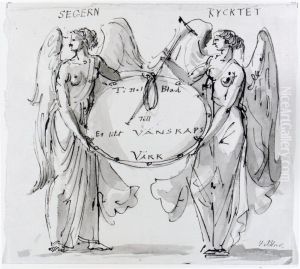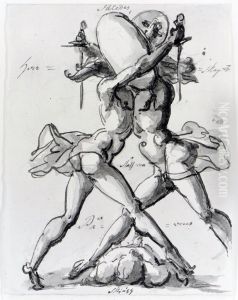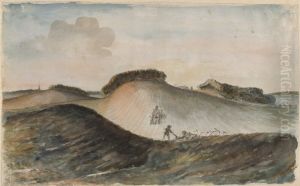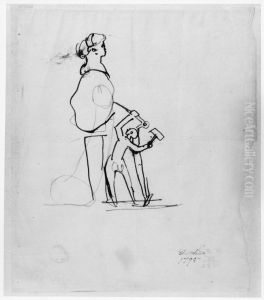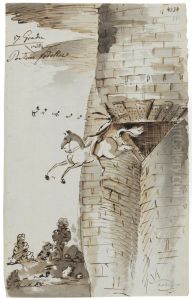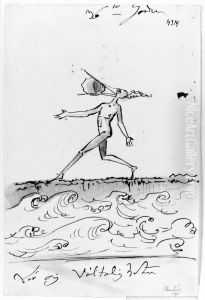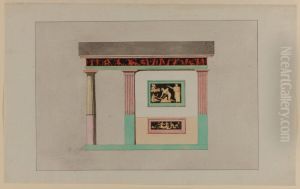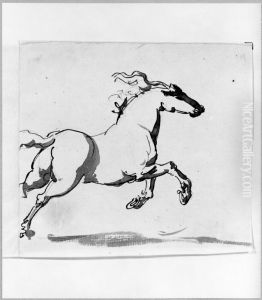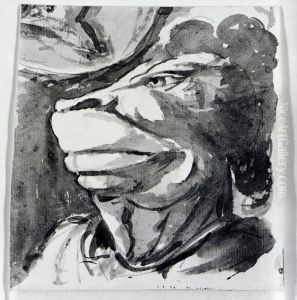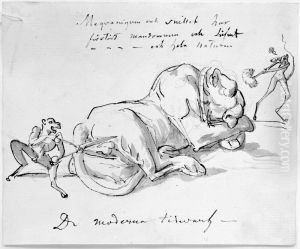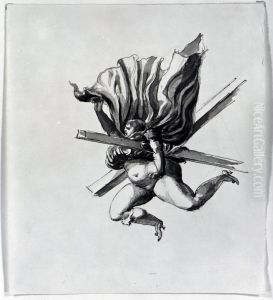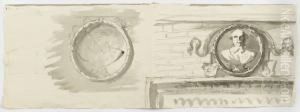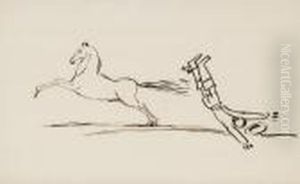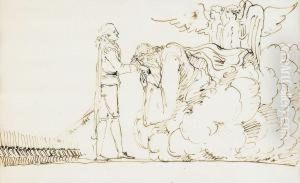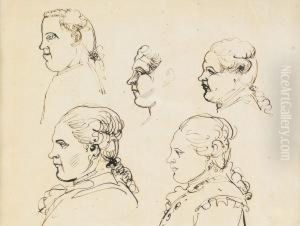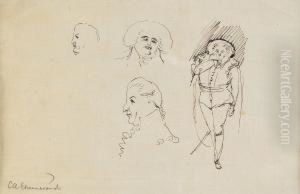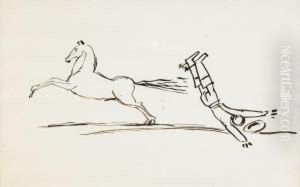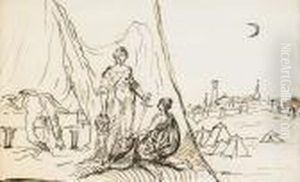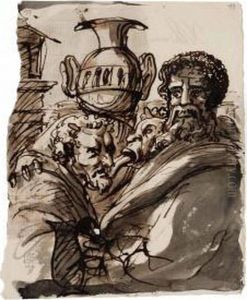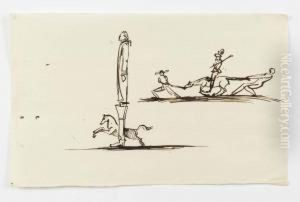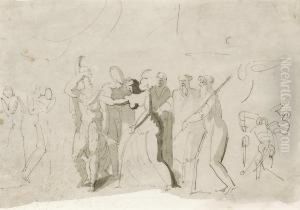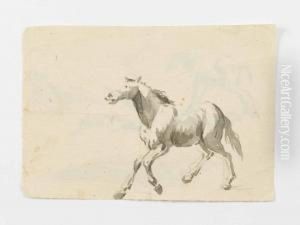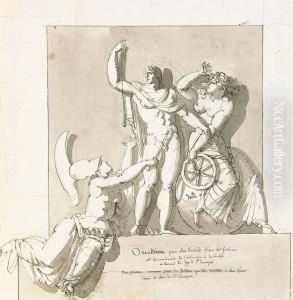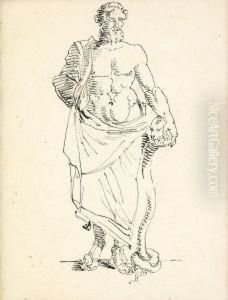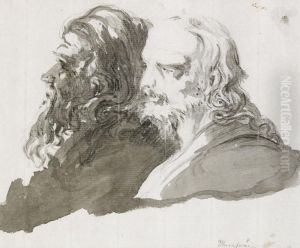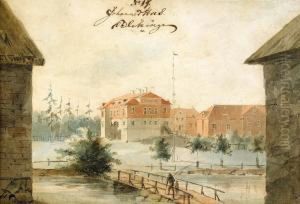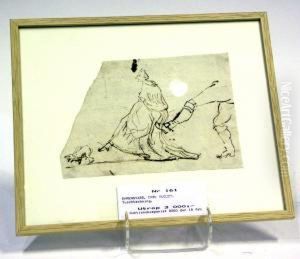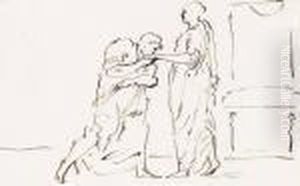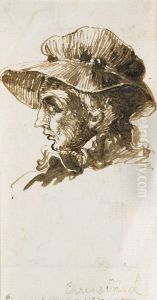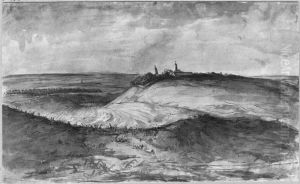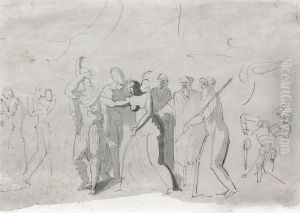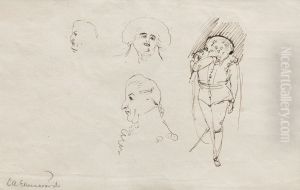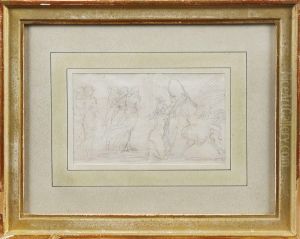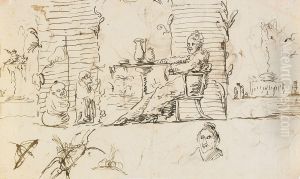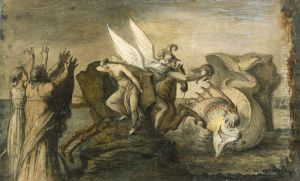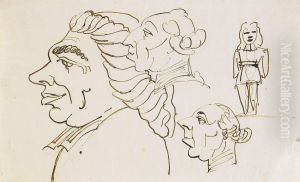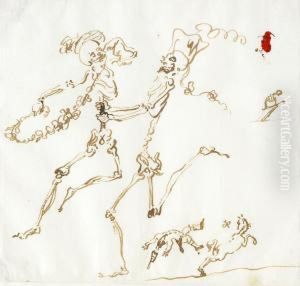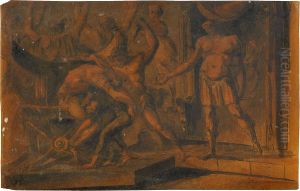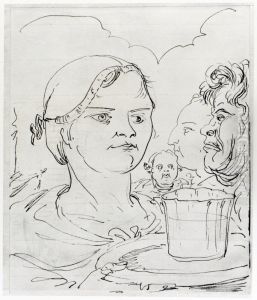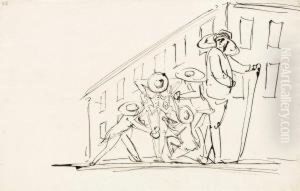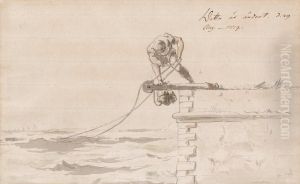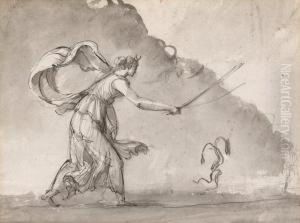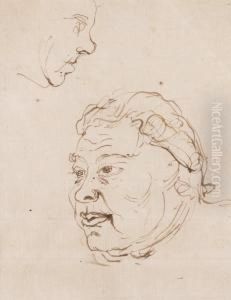Carl August Ehrensvard Paintings
Carl August Ehrensvärd was a Swedish naval officer, painter, author, and architect, born on September 5, 1745, in Karlskrona, Sweden. He was the son of Admiral Carl Tersmeden and Countess Ulrika Königsmarck, and he became known as one of the most multi-talented Swedish figures of the 18th century. Ehrensvärd's artistic talents were recognized early in his life, and he received encouragement to pursue his interests alongside his military career.
Ehrensvärd joined the Swedish navy at a young age and advanced to become an officer. His naval career was distinguished, and he participated in several important naval battles, including the Battle of Svensksund in 1790. Despite his military obligations, Ehrensvärd maintained a deep engagement with the arts throughout his life. He wrote extensively on aesthetics and was a proponent of the idea that art should serve national and moral purposes.
As a painter, Ehrensvärd was influenced by the ideals of Neoclassicism, which were in vogue during his time. He traveled to Italy, where he was inspired by the works of classical antiquity and the Renaissance. His artistic work includes landscapes, portraits, and architectural fantasies, characterized by a clear and refined linearity.
Ehrensvärd's contributions to architecture are also noteworthy. He was appointed the superintendent of the Royal Swedish Academy of Arts and carried out several architectural projects. One of his most significant works is the design for the Swedish naval base at Karlskrona. His architectural style was marked by simplicity and functionality, reflecting the ideals of classical architecture.
He also made significant contributions to literature, particularly with his reflective travel writings, which combined observations on art and culture with philosophical musings. His book 'Resa till Italien' (Journey to Italy), published posthumously, is considered an important work in Swedish literature.
Carl August Ehrensvärd died on May 21, 1800, in Stockholm. His legacy is remembered for the breadth of his talents and his contributions to Swedish cultural life during a period of significant change and development. Ehrensvärd is commemorated in Sweden as a figure who bridged the gap between military service and the arts, and he remains a respected figure in both fields.
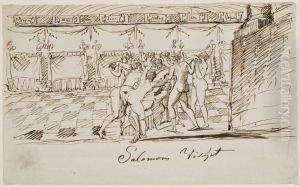
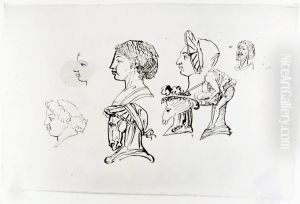
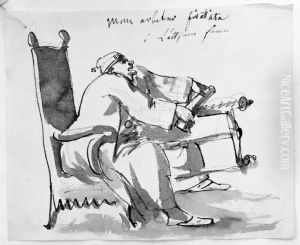
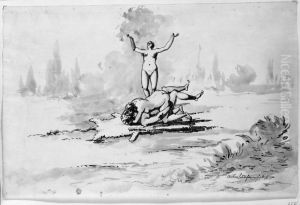
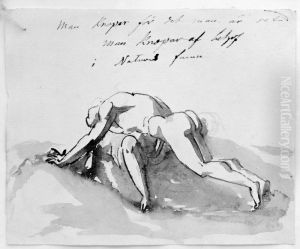
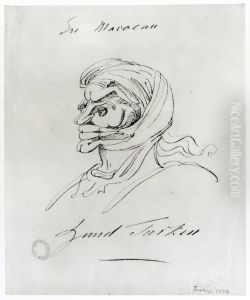
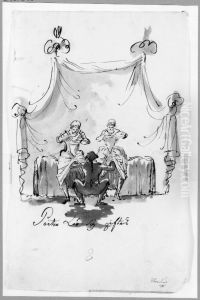
![Jag ar inte mannsika utan Glyphis [overst] ; Uppvaktning [underst]](https://www.niceartgallery.com/imgs/4531027/s/carl-august-ehrensvard-jag-ar-inte-mannsika-utan-glyphis-overst-uppvaktning-underst-e81153e3.jpg)
